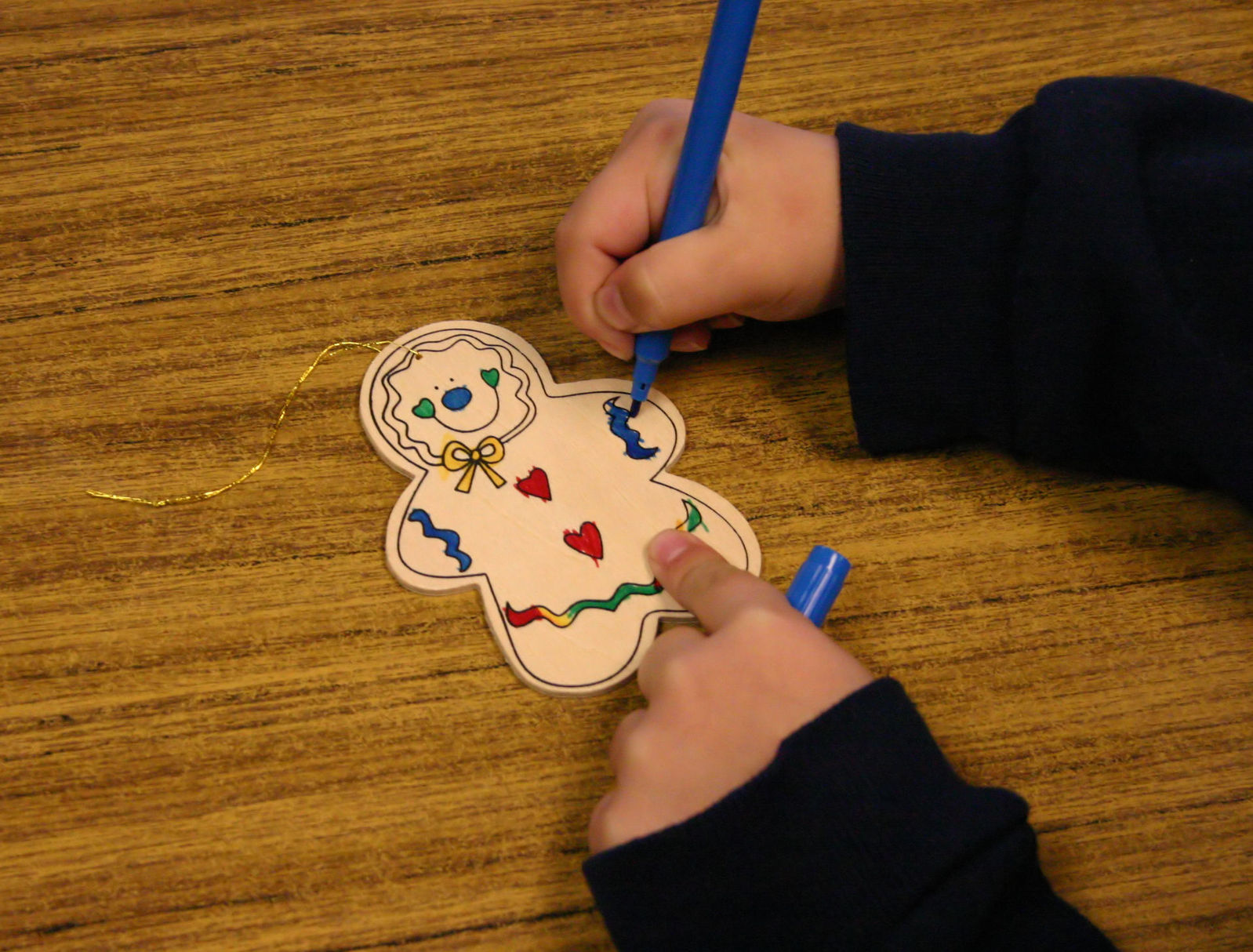How to Solve Common Child-Care Issues
Not sure how to approach your child care provider with a potential problem? These pointers will help you fix any issue with ease. Whatever your child-care situation is, the occasional problem is bound to arise. Whether it's a disagreement about money or screen time, what the child care provider is doing (posting pics of your kids on her Facebook page) or not doing (the dishes), open and honest communication is key. Try to solve problems before they arise by clearly writing out your rules and expectations. When a problem does rear its head, calmly ask questions to understand the full story and then discuss it respectfully with the provider. Clear communication about the needs of the parent, child, and child-care provider can help squelch any brewing disagreements. We asked parents for some of their common child-care problems and then consulted our experts to help you solve -- or, we hope, avoid -- these issues.
Solution: Ideally, screen time -- whether it's the TV, computer, or smartphone -- is something you've talked about beforehand, says Lindsay Heller, a nanny consultant at The Nanny Doctor (nannydoctor.com) and a licensed clinical psychologist. She recommends that parents "discuss [screen time expectations] during the interview process, define them in the job description, and clarify them in the work agreement." Before there's a problem, have a clear and open conversation with the nanny about your wishes. Consider providing the nanny with a list of approved nonscreen activities, such as walking to the neighborhood park, biking around the block, or pulling out a board game. Or show her where you keep art supplies or the path you take to the park. As for the nanny's time on her own phone, "your nanny isn't a mind reader," says Katie Vaughan, owner of Westside Nannies in Beverly Hills, California, so be clear about your expectations, whether it's for your sitter to get the kids up and moving or for her to be present and involved during their activities. Discuss any concerns you may have about the sitter posting pictures of your kids on social media sites, especially if they're pictures in places that can be easily tagged and identified. But be realistic about your requests: If your kids have gotten all their work done and they're watching a movie, your sitter can check her e-mail or Instagram account. If she ignores your requests, though, or is too involved with her phone "even after [you talk] to her, it's probably time to part ways," Vaughan says. "Not every sitter will be right for your family and it's your right as a parent to not settle on the quality of care you provide for your children." Problem 2: "My babysitter told me she got a speeding ticket, and now I'm not comfortable with her picking my kids up from school." Solution: Put it in perspective. "Speeding tickets happen to almost everyone. It doesn't mean you are a horrible person or a bad mother. What's important is that these behaviors are not part of a larger concerning pattern," Heller says. Instead, try expressing your concern with empathy. "You can say, 'I completely understand how that can happen. I'm always a little nervous having others drive my kids, so would you be willing to use an app that monitors your speed on your phone? That would give me peace of mind when you drive the kiddos,'" says Deborah Gilboa, M.D., a board-certified family physician and founder of Ask Doctor G (askdoctorg.com). Apps such as Canary, MamaBear, and SpeedBump can even allow you to monitor the speed of her car and location of the sitter when she is with your children. Problem 3: "I've started to notice a few things missing here and there -- a pair of my favorite earrings, a few dollars from my kids' money jar, a mini portable speaker. I'm worried it might be the babysitter. How do I confront her?" Solution: If things seem to be missing, try some recon before you let the accusations fly. Vaughan recommends first doing a thorough search of your house (how often have you thought you lost something and then found it slipped behind the dresser?). Check with each member of your family, especially kids who may get into things and not put them back where they below. You may want to casually ask the sitter if she's seen the items or ask her to keep her eyes open for them around the house and see how she responds. If you're still suspicious, "install a nanny cam," Vaughan says. "If you are worried your sitter is getting into things she shouldn't be, it is your right as a parent to know what is going on in your home while you are gone." Traditional camera-in-the-teddy bears still exist, but modern hidden cameras come in clock radios, smoke detectors, outlets, and even coffeepots and plants. These can be discreetly positioned, and some can be accessed remotely from your cell phone or computer so you can view live footage while you're away. Be sure to choose a video-only camera. In most states, you are not allowed to record audio without consent of the nanny. If you do decide to confront your sitter right away, "make sure you pull her aside in a calm, quiet, distraction-free environment and keep the conversation as positive and non-accusatory as possible, by first asking her if she has seen any of those items," Vaughan suggests. "We highly advise not going into the conversation with an 'I-know-you-took-my' line unless you have hard evidence." Unfortunately, even if you never get to the bottom of the missing items, experiences like this can cause you to lose trust. "When the trust is broken at this level, it is time to take steps to end that relationship with your nanny and plan for a new beginning with a new nanny," Heller says. Problem 4: "There's always a pile of dirty dishes in the sink when I get home from work, and the kids haven't started their homework. I thought my babysitter would do more." Solution: If the job description clearly included "kitchen cleanup" as one of the nanny's tasks, she may need a friendly reminder of the things you are expecting. But if it's just a job you were hoping the babysitter would do, you can't fault her for not being a mind reader. If there are things your kids are supposed to get done, be clear with them and the sitter about your expectations. "Make a list for your kids of what needs to be done by each of them before you get home," Dr. Gilboa says. The list "can include doing homework, washing dishes, starting dinner, putting away laundry, et cetera" Then, she says, let your sitter know that it is her responsibility to make sure the kids are accomplishing their tasks, as well as any you have designated for her. Consider asking her to dole out good (extra free time) or bad (loss of privileges) consequences if needed." Problem 5: "My mom and dad watch my son two days a week, but I can never seem to get a hold of them when I try to call during the day. I know they aren't very tech-savvy with their cell phones, but I get frustrated that they aren't easier to reach when I need to change plans or want to check in." Solution: It's important that you be able to reach your child-care provider during the day, whether to check in on your child or to change plans. You should make this clear up front and have multiple methods to get in touch when needed. When it's your own parents or in-laws, though, this can be trickier. They may be less comfortable or familiar with smartphone technology, have trouble hearing phone rings, or forget to check for missed calls or texts during the day. The first step is to sit your parents down and share your concerns. "Explain to them why having their phones and technology on hand is not just essential for you checking in with them but is extremely important should there be an emergency at home with the children" Heller says. Offer a tutorial session on how to use their smartphones and show them how to take and text pictures to help you stay connected throughout the day. Keep the phone in accessible places and fully charged and turned on at all times. Institute a "twice-a-day check-in at specified times for them to call you to help you know how the day is going and to give you an opportunity to confirm the pick-up schedule," Gilboa suggests. Keep the conversation framed in a positive light ("I love hearing about what you guys do during the day!") and your parents or in-laws will be more likely to try harder to stay in touch. Retrieved From: https://goo.gl/jNZPpI
|
|





 Problem 1:
Problem 1:










